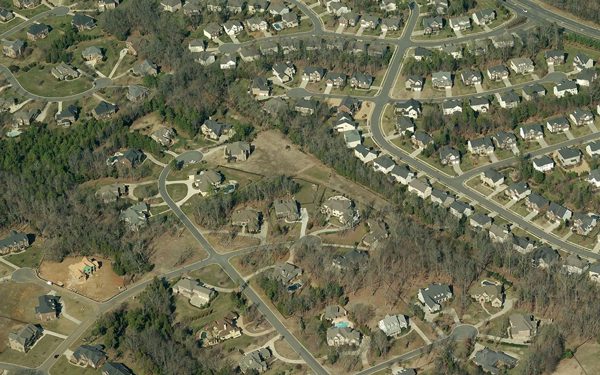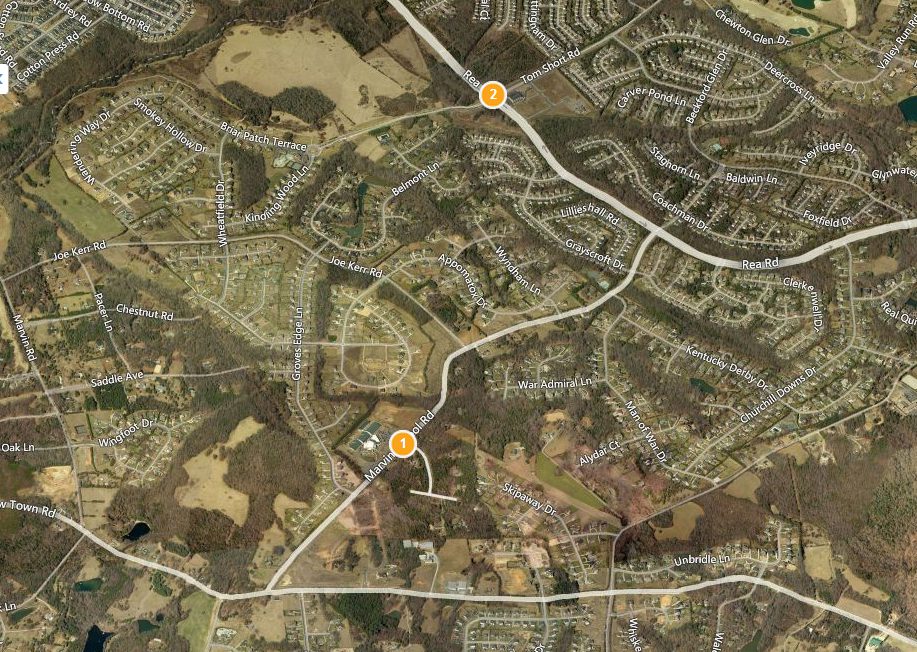NCDOT letter poses dilemma for low-tax Union County towns

A North Carolina Department of Transportation letter has planners and officials in several Union County towns scrambling to figure out how they’ll maintain new subdivision streets in what has long been one of the fastest growing counties in the state. The September letter from Division 10 engineer Louis Mitchell said NCDOT would no longer accept responsibility for maintaining new roads “for which the streets are part of subdivisions having the characteristics of serving only adjacent properties.” The change would not affect existing streets and roads.
Mitchell said he wrote the letter to all 14 Union County municipalities after reviewing a request for NCDOT to accept maintenance on streets within a new subdivision in an incorporated area of an unspecified Union County town. Mitchell’s letter indicated that Union was the only county in the state where NCDOT has been agreeing to maintain new subdivision streets.
However, secondary roads manager Delbert Roddenberry at the state NCDOT office said the agency continues to accept subdivision streets in municipalities in other parts of the state, as long as those municipalities don’t qualify for the state’s Powell Bill program, in which municipalities receive some state road maintenance funds based on a formula. Summerfield in Guilford County, for instance, does not receive Powell Bill funding. The NCDOT continues to accept new subdivision roads for maintenance there, Summerfield Town Manager K. Scott Whitaker said.
The confusion stems from the way the state allocates road maintenance money. NCDOT maintains all public roads in unincorporated areas of the state. Through the Powell Bill program, the state also provides money for municipalities to maintain some secondary and subdivision roads, which comes from a 1 3/4-cent gas tax and part of the state’s Highway Trust Fund. To receive Powell Bill funding municipalities must meet certain requirements, including at least a 5-cents-per-$100 value property tax rate and the provision of certain services. The amount each municipality receives depends on its population and how many miles of roads and streets it maintains.
Mitchell’s letter said the state would no longer accept new subdivision roads in any of Union County’s 14 municipalities – including the six that don’t receive Powell Bill funds (Fairview, Hemby Bridge, Mineral Springs, Wesley Chapel, Weddington and Unionville). That would mean those six towns would have two options – require new subdivisions to maintain their own streets through homeowner association fees, or raise taxes to take advantage of the Powell Bill program.
Mineral Springs Mayor Rick Becker said his town would have to double its tax rate of 2.5 cents per $100 to qualify for the Powell Bill program. But allowing private streets is not an attractive option for the town, Becker said.
“We’d have to find more services to provide to justify doubling the tax rate,” Becker said. “The public hasn’t asked for that, especially because the public is satisfied with DOT maintenance of their subdivision streets.
“We’re a big proponent of public roads. We think that’s the way to go. We don’t allow gates. It would be a very hard sell for my board.”
Still, officials in other Union County municipalities say Powell Bill funding is not likely to cover all maintenance expenses long-term, especially as streets in these relatively new suburbs begin to age. And they note the Powell Bill program has been the target of several bills from legislators to reduce or eliminate the funds.
In Marvin, just south of the Mecklenburg County line, the tax rate is 5 cents per $100 valuation, just enough to qualify for the Powell Bill program. Marvin entered the Powell Bill program in 2006 and maintains less than a half-mile of road. It received $122,523 in Powell Bill funding in 2013. The town has used most of its Powell Bill money for sidewalk improvements, including the “Marvin Loop” greenway.
Marvin’s zoning ordinance does not allow private streets, Town Administrator Lisa Thompson said. The new DOT policy could lead the town to consider changing that policy. This fall’s municipal election put any consideration of changes to the ordinance on hold as the town elected a new mayor and two new council members, Thompson said.
“We’ll need to get them up to speed with all the information prior to making a decision on whether to accept roads or not,” Thompson said.
Louis Mitchell moved into the Division 10 job overseeing Mecklenburg, Anson, Cabarrus, Stanly and Union counties in late 2012. Prior to that, he was an engineer in the NCDOT’s Mecklenburg County office. All seven Mecklenburg County municipalities receive Powell Bill funding.
“A predominant amount of my experience was in Mecklenburg,” Mitchell said in a December interview. “There was really not a town that didn’t qualify for the Powell Bill in Mecklenburg. We had not been accepting roads in incorporated areas. The question of Powell Bill versus non Powell Bill did not come up.”
Roddenberry said on Wednesday that the state DOT is treating Mitchell’s letter as a local issue. Roddenberry said DOT would likely continue to maintain new subdivision streets in towns that are not eligible for Powell Bill funds. The department, however, tries to get municipalities with more than 5,500 residents to maintain their own roads. Three of the six Union County towns not receiving Powell Bill funding have populations more than 5,500 – Weddington (9,887), Wesley Chapel (7,894) and Unionville (6,172).
“We’re trying to encourage them to take advantage of the Powell Bill program,” Roddenberry said. “Right now, the roads are in pretty good shape, you can build up a little (savings).”
Meanwhile, as the Charlotte-area housing market continues its rebound, town officials, planners and developers remain unsure who will maintain the streets in several planned subdivisions.

Since receiving notice that the NCDOT would no longer accept maintenance on new subdivision streets, municipalities in fast-growing Union County have been scrambling to figure out how to pay for the change. Since the September letter, two new subdivisions have been approved in Marvin alone: 1. At the site of a planned 92-lot Toll Brothers subdivision, The Preserve, on Marvin School Road, and 2. The 44-lot Pulte Homes Tullamore subdivision at Rea and Tom Short roads.